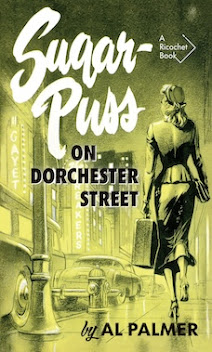Separation Two
Richard Rohmer
Markham, ON: PaperJacks, 1981
March has come in like a lion, but
those of us committed to reading Richard Rohmer in '14 continue unfazed. We're now six books into the man's oeuvre. Quite an achievement, I think you'll agree, but not nearly so impressive as it sounds. Rohmer has a habit of repeating himself, going over the same facts and past events as if aware that the reader wasn't paying much attention the first time around. Sometimes it's figures about natural gas reserves, pipeline capacity or technical details about the C-130 Hercules, but mostly it's an just a summary of his previous novel.
The first fifth of
Exxoneration is a revisionist retelling of
Ultimatum. Rohmer does something similar in
Separation, before tacking on the final chapter of
Exodus/UK.
More lifted filler follows.
With
Separation Two, however,
Rohmer takes repetition and recycling to a level not seen since the days of Thomas P. Kelley.
This is no sequel to
Separation, Rohmer's 1976 bestseller, but a reissue sandwiched between four short chapters about Alberta separatism and an oil man's attempt to assassinate the prime minister. It's a shaky union, made all the more so by haphazard editing.
In the original, a severe economic crisis prompts the UK to ask whether Canada will accept millions of British immigrants. Quebec threatens to separate if Ottawa agrees; Alberta and BC threaten to separate if it does not. There's also lots of superfluous stuff about North Sea oil reserves, off-shore platforms, pipelines, along with an entirely irrelevant four-page UK/US energy agreement copied from
Exodus/UK.
In
Separation Two, Alberta is “prepared to take the British immigrants”, but doesn't really care much either way. The prospect of several hundred thousand economic refugees flooding into the province? Please. What concerns Albertans are oil profits and "the budget that asshole in Ottawa threw at us".
The thing about that asshole, Prime Minister Joe Roussel (read: Pierre Trudeau), is that he's stuck repeating everything he said in
Separation, things that simply don't fit
Separation Two, like when he tells a crowd amassed on Parliament Hill: “British Columbia and Alberta have notified the federal government that if we do not take the British immigrants those provinces will succeed.”
What?
When?
Why in the original book, of course. The threat comes in a fleeting scene with the BC premier, a minor character that does not appear in
Separation Two.
See, it's not the asshole's fault, it's the author and editor.
It seems that
Separation Two was born out of disappointing mass market sales of
Separation. As is so often the case in his fiction, the Americans are at fault. Sandra Martin got a reluctant Rohmer to discuss his rewrite in the 13 June 1981
Globe & Mail:
According to Rohmer, someone at Bantam in New York who knew nothing about Canada and less about art, designed the cover and wrote the copy on the back. Then the book was launched in Canada "without promotion" even though a television film of the book was in the works. The paperback was "a disaster." "It died and when it went out of print about a year ago, the rights reverted to me."
In the meantime, Rohmer had moved to General Publishing, which wanted to re-release Separation in their PaperJacks line. Rohmer agreed, but suggested the book should be updated. And that's how Separation II [sic], which Rohmer suggests is "the same book yet different," came about.
Okay, a few quick observations:
- As a teenager I owned that Bantam (Bantam/Seal, actually) copy of Separation. I remember it as being far superior to previous Rohmer covers in that it was something more than 72-point type against a grey or white background.
- I very much doubt the unnamed New York-based artist who designed the cover also wrote the back copy.
- Rohmer dodged a bullet in not having a tie-in edition to that gawdawful made-for-TV flick.
- Oh, for the days in which a three-year mass market run was considered "a disaster."
What I really want to address is the idea that
Separation Two is "the same book yet different". No argument there, but why give it a different title? A novelist revisiting a work is not without precedent – hell, Dickens changed the ending to
Great Expectations – but I can't help but think that PaperJacks was trying to pull a fast one. It really does stink. Nowhere in the cover copy is there so much as a hint that
Separation Two is just
Separation with a few dozen pages added. In fact, both bibliography and copyright page labour to give the impression that
Separation is something altogether different.
Whatever does this mean for
Ultimatum 2?
Update: Turns out my memory of the Bantam/Seal edition was spot on. The cover is by
Paul Lehr, an American artist remembered primarily for his work on science fiction titles. I see no evidence that he wrote cover copy.
Note: Much of this post is consists of observations I first made on the
Reading Richard Rohmer blog. I've learned from the master.
Object and Access: A cheaply produced mass market paperback, most public library copies fell apart long ago. There are plenty of used copies listed for sale online. I've yet to find evidence of a second printing, so all are first editions, right?
Related posts:































